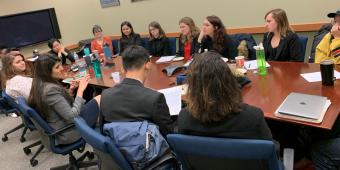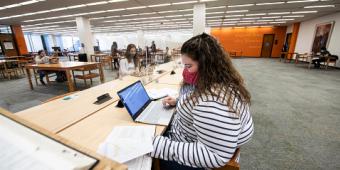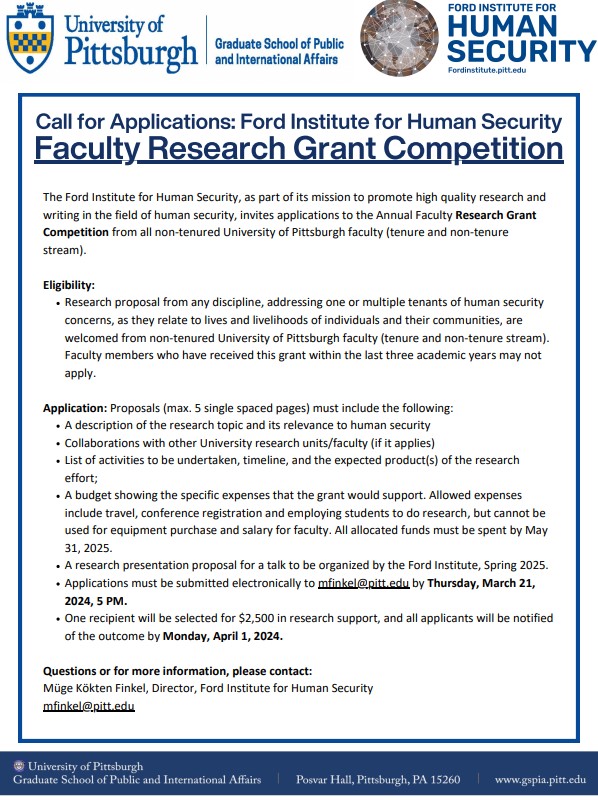The Ford Institute consistently works to conduct rigorous, actionable research on a variety of human security topics. It creates programs and events to help promote scholarly research that educates academics and policymakers.

Each year our faculty-led research groups partner with local, state, federal or international entities to pursue research questions and produce analyses on a variety of human security topics.

Every year, Ford connects students to a variety of opportunities including helping to place students in internships with organizations like the United Nations. In addition, The Ford Institute gives a graduation award each year for exceptional academic research in the field of human security.

To help you navigate through the expansive field of human security and find the resources you need, the Ford Institute has compiled information on human security research, teaching and employment.
In August 2015, Pitt faculty began collaborating with UNDP on a global initiative to track gender equality in public administration (the GEPA Initiative, for short). Through the Ford Institute for Human Security, they co-founded the GEPA Working Group.

Throughout the academic year, students produce research in their courses and by participating in working groups. This section features examples of student research on human security topics, from GSPIA courses.

The Institute's Affiliated Faculty are engaged in research on a wide range of human security topics. Additionally, once a year a grant is awarded for faculty research to a non-tenured university professor to encourage additional human security research across campus.
- Faculty Research Grant Competition:
-


